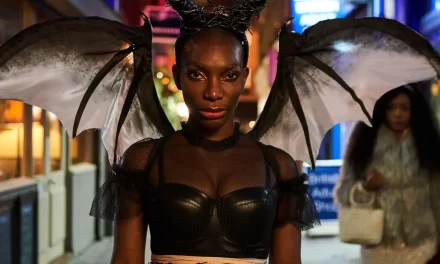To be considered for the edited volume, Queer TV China
Contemporary China largely remains a hetero-patriarchal-structured society. Nevertheless, certain media and public spaces—though limited and compromised—are available for the negotiated survival and expressions of its gender, sexual, and sociocultural minorities (Bao 2018, 2020; Engebretsen 2014; Engebretsen and Schroeder 2015; Ho 2010; Kam 2013; Rofel 2007). This is especially evident in today’s Chinese televisual world and its related fannish space (Bai and Song 2015; Gong and Yang 2017; Yang and Bao 2012; Lavin, Yang, and Zhao 2017). Since the beginning of the 2010s, diverse communities, creative practices, and digital tools have flourished in both the mainstream media and online spaces of the Sinosphere. These have worked together to facilitate trans-geocultural and cross-linguistic flows of TV information and local TV production and adaptation (Yang 2009, 2014; Zhao 2018b). Today’s Chinese TV screens are replete with images of norm-defying gendered, sexualized, and/or eroticized performances, sentiments, and embodiments. For example, over the past two decades, there has been a surge in the number of tomboyish female and effeminate male TV stars. Meanwhile, many popular Chinese TV shows have featured cross-gender performances, homosociality, LGBTQ-identified personalities and participants, and even have explicitly addressed topics, such as gay marriage and queer rights.
More intriguingly, this queer TV culture has emerged in many mainstream, commercialized spaces and has thrived through close dialogue with multilayered capitalist and political forces and interests (Wang 2015; Xiao 2019; Zhao 2016, 2018a, 2018b, 2020). A growing number of Chinese TV dramas, talk shows, and reality TV programs are appropriating a hetero-patriarchal Chinese orthodoxy to create non-heterosexual fantasies that one would expect to be censored within such a highly normative, authoritarian context. Even during the Covid-19 pandemic, China’s queer TV hype was prominent as the domestic audience tuned in to dramas adapted from boys’ love (BL) fiction and enthusiastically participated in cyber debates over the fictional transgender persona of their idols constructed in fanfiction.
This edited volume project proposes “queer TV China” as an interdisciplinary field of critical inquiry that draws on the intersection of TV studies, China studies, queer media studies, and global queering studies (Zhao 2019). On the one hand, it is attentive to the queer televisual spectacle crystalized in mainstream Chinese culture’s censoring, appropriation, mobilization, and commercialization of local, transnational, and global gender and sexual knowledge. On the other, it strives to unravel the queer agency of norm-defying genders, sexualities, bodies, identities, and desires mediated through contemporary Chinese TV screens and fan practices.
The volume is particularly concerned with unsettling the dichotomous logic too often employed in understanding a series of sociocultural categories and identifications, not only around gender and sexuality but also regarding televisual imaginings of China (including but not limited to dominant Chinese discourses of love, family, marriage, and the nation-state). Following a de-Western-centric logic in global queering culture and queer China studies (Bao 2018, 2020; Jackson 2001, 2009; Martin et al. 2008), this project refuses to simplify this queer TV culture as the capitalist exploitation and stereotyping of gay identities, lives, and politics. Rather, it is intended to oppose the universalization of a Western conception of homosexuality as the only way to represent “queerness” in non-Western media. Instead, the volume recognizes the inherently intertwined queer and normative dimensions of TV as a fecund sociocultural platform in contemporary China. It also unveils the potential and problems of queer-natured Chinese televisual-industrial-cultural production, distribution, and consumption. Potential contributors to this volume are invited to challenge the dichotomy of “positive” and “negative” representations of gender and sexual minorities by reflecting on specific case studies.
The volume considers the following questions:
- In what ways can this queer TV culture interrogate or mediate the state’s economic, political, and ideological projects?
- What is the relationship between queer TV images, China’s media regulatory policies, and the existence and performances of gender and sexual non-normativities in off-screen Chinese society?
- How do queer TV cultures and studies situated in China, a largely authoritarian, heteronormative nation-state, open up new scholarly understandings and analytical possibilities for post-2010 Asian media and cultural studies?
Ultimately, the goal of the project is to excavate how queer TV carefully positions itself in relation to other more politically sensitive and often severely censored lesbian and gay-themed media and cultural productions in China. Contributions that highlight the negotiative power of queerness in identity formation and desire-voicing and/or emphasize the ways in which official political-ideological manipulations, mainstream commercial forces, and defiant voices intersect, compete, and collaborate on TV and in its fandom will be especially welcome.
Manuscript topics in relation to this theme may include, but are not limited to the following:
- The emergence and evolution of zhongxing (中性; androgynous) celebrity culture on TV
- Transgender/transsexual images, including portrayals of eunuchs in historical/ancient Chinese TV stories
- Chinese reality TV programs (either Internet-based or satellite) that appropriate or capitalize on LGBTQ groups and cultures
- TV narratives that draw on or encourage viewers’ queer readings and imaginaries, such as gender-bending, time-traveling TV dramas (性转穿越剧) and TV series adapted from online BL/GL fictions (耽改剧)
- The queer space and temporality of Chinese xianxia dramas (仙侠剧; the “immortal hero” genre)
- Non-normatively gendered and sexualized representations of ethnic minorities on Chinese TV
- TV representations of non-mainland Chinese LGBTQ celebrities (such as Thai lesbian stars, Taiwanese gay celebrities, and American and British gay singers)
- LGBTQ groups’ appropriation of online TV production, distribution, and consumption for self-representation and pink money, facilitated by the growing popularity of China’s cyber communicative platforms and digital media
- China’s transcultural adaptation and mutation of queer-loaded televisual genres, formats, and aesthetics (such as the Chinese version of Queer Eye 你怎么这么好看)
- Queer TV narratives that frustrate or reconfigure China-centrism, the imaginary of Chineseness, and discourses on nationalism and patriotism
- The interconnection and contestations between waves of local and global LGBTQ and feminist movements, global queer media, and China’s queer TV culture
- Cross-dressing performances, impersonations, and celebrities on TV, including TV representations of cross-gender cosplayers (e.g., weiniang 伪娘) and Chinese opera performers
- The ways in which China’s political regulations and media censorship systems catalyze, manifest in, or frustrate this queer TV phenomenon
Timeline:
Paper proposal due by July 30, 2020 (500 words with working bibliography and a CV to the editor)
Acceptance notification by August 20, 2020
Final submission due November 30, 2020 (6,000-8,500 words)
Note
Academic writings grounded in certain critical and theoretical perspectives that have NOT been published elsewhere are particularly welcome.
To submit proposals for consideration, please send an abstract (outlining the topic, arguments/hypotheses, and primary materials for analysis) with working bibliography and a CV to the editor by July 30, 2020.
Decisions on papers will be made on a rolling basis until August 20, 2020. Early submissions are strongly encouraged.
Completed, well-polished papers from accepted contributors should be between 6,000 and 8,500 words and are expected before the end of November 2020.
Questions and submissions regarding the edited volume should be addressed to Dr. Jamie J. Zhao at jingjamiezhao@gmail.com
References
Bai, Ruoyun, and Geng Song, eds. 2015. Chinese Television in the Twenty-First Century: Entertaining the Nation. New York: Routledge.
Bao, Hongwei. 2018. Queer Comrades: Gay Identity and Tongzhi Activism in Postsocialist China. Copenhagen: NIAS Press.
Bao, Hongwei. 2020. Queer China: Lesbian and Gay Literature and Visual Culture under Postsocialism. London: Routledge.
Engebretsen, Elisabeth L. 2014. Queer Women in Urban China: An Ethnography. New York: Routledge.
Engebretsen, Elisabeth L., and William F. Schroeder, eds. 2015. Queer/Tongzhi China. Copenhagen: NIAS Press.
Gong, Haomin, and Xin Yang. 2017. Reconfiguring Class, Gender, Ethnicity and Ethics in Chinese Internet Culture. London: Routledge.
Ho, Loretta Wong Wah. 2010. Gay and Lesbian Subculture in Urban China. New York: Routledge.
Jackson, Peter A. 2001. “Pre-Gay, Post-Queer.” Journal of Homosexuality 40 (3-4): 1-25.
Jackson, Peter A. 2009. “Global Queering and Global Queer Theory: Thai (Trans)genders and (Homo)sexualities in World History.” Autrepart 49: 15-30.
Kam, Lucetta. 2013. Shanghai Lalas: Female Tongzhi Communities and Politics in Urban China. Hong Kong: HKUP.
Lavin, Maud, Ling Yang, and Jing Jamie Zhao, eds. 2017. Boys’ Love, Cosplay, and Androgynous Idols: Queer Fan Cultures in Mainland China, Hong Kong, and Taiwan. Hong Kong: Hong Kong University Press, 2017.
Martin, Fran, Peter A. Jackson, Mark McLelland, and Audrey Yue, eds. 2008. AsiaPacifiQueer: Rethinking Genders and Sexualities. Urbana: University of Illinois Press.
Rofel, Lisa. 2007. Desiring China: Experiments in Neoliberalism, Sexuality, and Public Culture. Durham: Duke University Press.
Wang, Qian. 2015. “Queerness, Entertainment, and Politics: Queer Performance and Performativity in Chinese Pop.” In Queer/Tongzhi China, edited by Elisabeth L. Engebretsen and William F. Schroeder, 153-178. Copenhagen: NIAS Press.
Xiao, Hui Faye. 2019. Youth Economy, Crisis, and Reinvention in Twenty-First Century China. New York: Routledge.
Yang, Ling. 2009. “All for Love: The Corn Fandom, Prosumers, and the Chinese Way of Creating a Superstar.” International Journal of Cultural Studies 12 (5): 527-543.
Yang, Ling. 2014. “Reality Talent Shows in China.” In A Companion to Reality TV, edited by Laurie Ouellette, 516-540. Malden, MA: John Wiley & Sons.
Yang, Ling, and Hongwei Bao. 2012. “Queerly Intimate: Friends, Fans, and Affective Communication in a Super Girl Fan Fiction Community.” Cultural Studies 26 (6): 842-871.
Zhao, Jamie J. 2016. “A Splendid Chinese Queer TV.” Feminist Media Studies 16 (1): 164-168.
Zhao, Jamie J. 2018a. “Censoring ‘Rainbow’ in China.” IAPS Dialogue, June 1. Accessed March 1, 2020.
Zhao, Jamie J. 2018b. “Queer, Yet Never Lesbian: A Ten-Year Look Back at the Reality TV Singing Competition Show Super Voice Girl.” Celebrity Studies 9 (4): 470-486.
Zhao, Jamie J. 2019. “Queer TV China as an Area of Critical Scholarly Inquiry in the 2010s.” Critical Asian Studies 26, December 25. https://criticalasianstudies.org/commentary/2019/12/25/201926-jamie-zhao-queer-tv-china-as-an-area-of-critical-scholarly-inquiry-in-the-2010s?fbclid=IwAR3AThciSB-vuyydd1wCr8R0oVp05LnJSQq2RYwBOSUZdYlHyWwupHo4FCU
Zhao, Jamie J. 2020. “It Has Never Been ‘Normal’: Queer Pop in Post-2000 China.” Feminist Media Studies 20 (4): 463-478.
Editor:
Dr. Jamie J. Zhao, Xi’an Jiaotong-Liverpool University
Jamie J. Zhao is a global queer media scholar and currently Assistant Professor of Communications in the Department of Media and Communication at the Sino-UK collaborative institution, Xi’an Jiaotong-Liverpool University. She holds a PhD in Gender Studies from the Chinese University of Hong Kong and completed another PhD in Film and TV Studies at the University of Warwick. Trained in the UK, Australia, Hong Kong, the US, and mainland China in media and communication studies, gender and queer studies, and cultural and critical theories, her work explores East Asian media and public discourses on gender and sexuality in a digital, globalist age. Her academic writings can be found in a number of journals and edited volumes, such as the ones in Feminist Media Studies, Celebrity Studies, Critical Asian Studies, and MCLC. She is also the coeditor of and contributor to the first English-language anthology on cyber queer Chinese fandom studies, Boys’ Love, Cosplay, and Androgynous Idols: Queer Fan Cultures in Mainland China, Hong Kong, and Taiwan (Hong Kong University Press, 2017).





